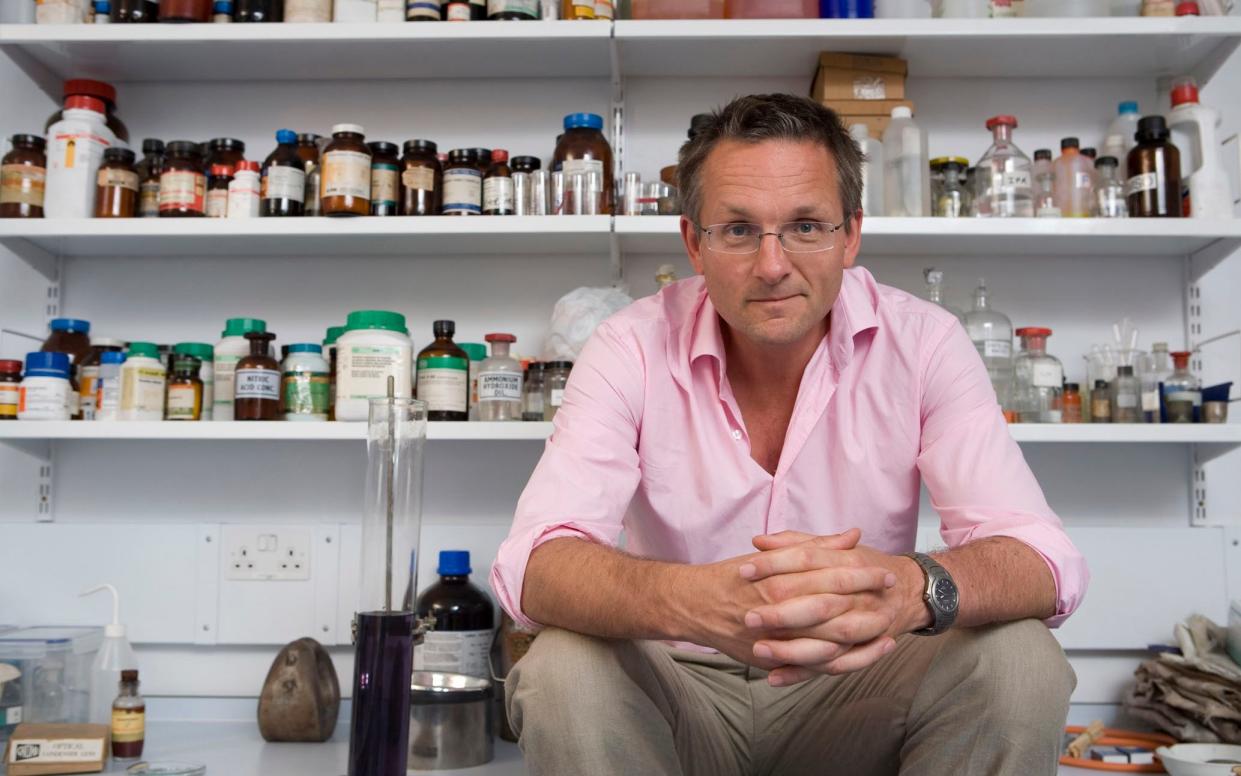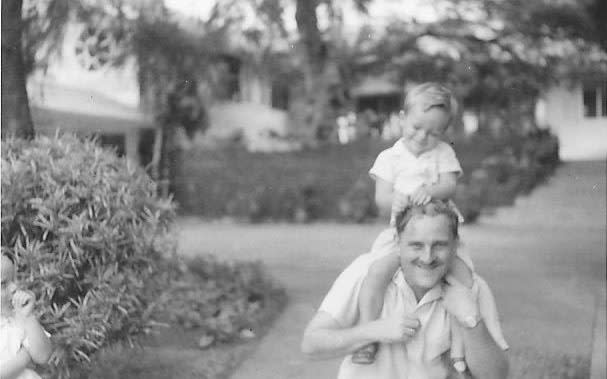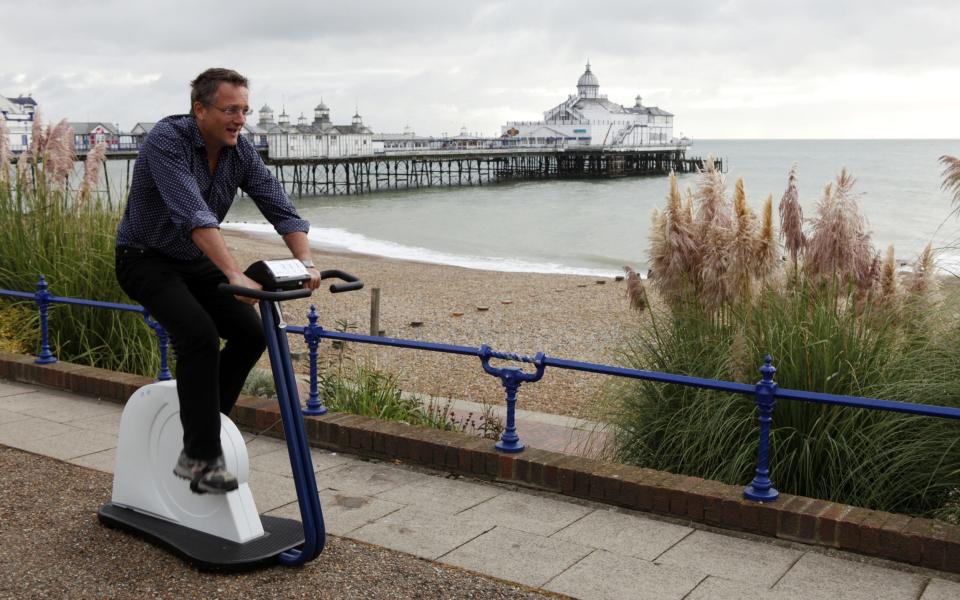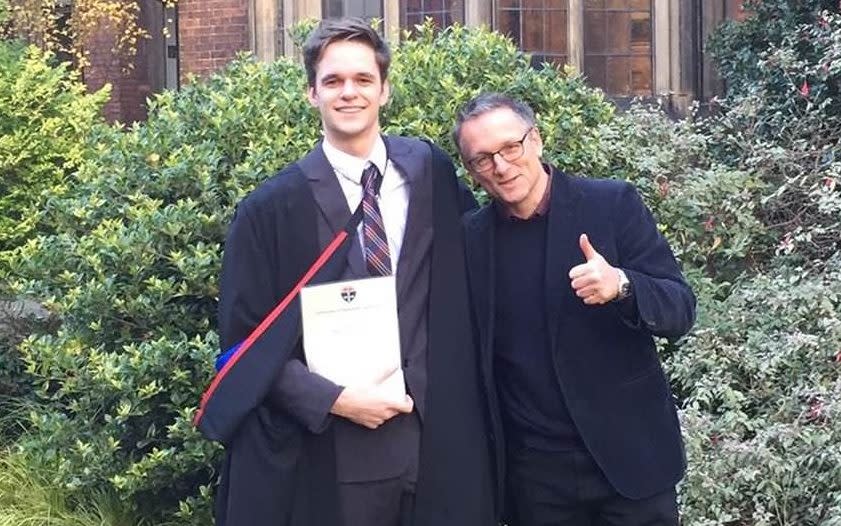How TV doctor Michael Mosley revolutionised our approach to losing weight

He dedicated his life to helping us live longer and better lives, but tragically his was cut short at just 67. Now, Michael Mosley’s many grateful fans are mourning the loss of a truly good doctor.
When the TV medic first went missing during a coastal walk on the picturesque Greek island of Symi, it was local residents who initially shared the news, posting an appeal for witnesses on Meta (Facebook), and offering up prayers for his safe return.
The outpouring of concern and affection was of no surprise – Mosley became a household name and one of the most recognisable and trusted figures in healthcare after the publication of The Fast Diet, a book he co-wrote that popularised an intermittent fasting strategy known as the 5:2 diet, where you restrict your intake to just 500-600 calories on two days of the week. Published in 2013, it sold more than 1.4 million copies worldwide and was translated into more than 30 languages.
His subsequent books included The Fast 800 Keto, published in 2021, which laid out a low-carb, Ketogenic Mediterranean diet (the 800 refers to consuming 800 calories a day).

Mosley’s groundbreaking research, broadcasting and writing united everyone from A-list actors to former cabinet members in their take-up of intermittent fasting, as well as his keto diet strategy, while millions of others have drawn inspiration from his cleverly crafted, comprehensible tips on how to live a healthier life.
Labour’s Tom Watson lost a remarkable six stone in 2018 by following Mosley’s keto diet, and Conservative MP David Davis shed two stone in 2019. Others have also spoken in praise of intermittent fasting, including Jennifer Aniston, Kourtney Kardashian and the former Twitter CEO Jack Dorsey.
Stefanie Calleja-Gera told the Telegraph that she lost two stones in three months, without stepping into the gym after she and her partner did Mosley’s Fast 800 diet together; they were thrilled by the results.
Mosley himself followed it and lost 20 pounds and reversed his diabetes. His father had also had diabetes and died relatively young.

The book was a publishing sensation and also an industry game-changer, says nutritionist Sam Rice. “The main thing that distinguished it was that it was very popular with men as well as women. Up until then weight loss was seen as very much the preserve of women. But the fasting concept worked for men because it had one firm, simple rule.”
Mosley, she adds, “revolutionised the nation’s approach to health and weight – all by getting key information across in bitesize nuggets.”
Numerous people have shared how following Mosley’s diet advice has changed their lives; many of them reversed pre-diabetes.
Mosley was born in 1957 in Calcutta, India, and began his career in finance. After reading PPE at New College, Oxford, he worked as a banker in the City for two years. He then moved into medicine, studying at what is now known as UCL Medical School in London.
He had intended to train as a psychiatrist, but switched tack again, joining the BBC in 1985 as a trainee assistant producer. There he helped to shape science programmes such as The Human Face, presented by Professor Robert Winston, as well as Inventions That Changed the World, presented by Jeremy Clarkson.

But Mosley really found his calling in front of the camera. In 2008 he presented Blood and Guts: A History of Surgery, and the following year he had big successes with Make Me Live Forever, exploring the science of ageing, and 10 Things You Need to Know About Losing Weight, both for the BBC.
Those accessible titles point to the secret of his enduring success. “He was the first media doctor I’d come across, and he’s always had this very approachable way of talking about health,” says deputy health editor Alice Wilkinson.
“He could spin complex theories into something that people understood and really use to make changes in their lives. People looked up to him, but he wasn’t intimidating – his advice was very actionable.”
Mosley became a TV regular, appearing on everything from BBC Breakfast to The Wright Stuff, Sunday Morning Live, This Morning and The One Show. That meant he could bring his advice into viewers’ homes, in a friendly way.

Mosley was also known to regularly test his body with innovative and often weird experiments to help improve his understanding of what humans can achieve, how to delay ageing and improve health.
For instance, he once injected snake venom into his own blood stream, and ate black pudding made with his own blood. In the documentary Infested!, he also infected himself with tapeworms for six weeks in a bid to understand how they impact the human body.
He told the BBC: “When I first saw the worms, I was in an Indian restaurant. I shouted out: ‘Blimey! There’s a tapeworm in me!’ The other diners looked very surprised.
“I was delighted, but at the same time, it was rather horrible. My wife wasn’t too keen on the idea, either. But I told her not to worry - this particular tapeworm is relatively innocuous.”
He has also stuck a leech on his arm, tried to infest himself with lice, and taken sodium thiopental - otherwise known as truth serum - and also took the magic mushroom drug psilocybin. With this experiment, he was placed in a brain scanner while the drug was injected.
He again told the BBC: “For an instant there was nothing. Then it was like that moment in a Star Trek film when the space ship goes into hyperdrive. The walls of the scanner dissolved and I took off to the stars. I saw intense colours and patterns.
“It was beautiful, but disturbing. It was also intensely frustrating because I wanted someone to share the experience with, and I was all alone in a metal and plastic tube.”
He moved into other areas of health too, such as sleep, again offering straightforward tips, such as slowing your breathing and taking a warm bath or shower just before going to bed.
His podcast Just One Thing similarly offered tips to make life healthier – from Nordic walking to reading poetry. In April, Mosley revealed that he was filming a TV version of the series.
He met his wife Clare Bailey at medical school in 1980, and she became his partner in both work, as well as in life. A fellow doctor and a creative cook, she often crafted delicious recipes to fit with his fasting programmes. The couple, who have four grown-up children, also share tips on how to eat healthily as a family.

Other hit programmes included Trust Me, I’m A Doctor – and “he really was very trustworthy,” adds Alice Wilkinson. “He was a kind communicator, and he took a realistic approach. He relied on science and research, and he didn’t oversell – which is something we’re losing touch with thanks to the rise of social media doctors and spurious online health advice.”
Mosley once said that part of his mission was cutting through the “nonsense out there” and showing people “where the truth really lies”. He also loved it when members of the public stopped him on the street and shared their stories.
“It’s a fantastic feeling when people tell you that you’ve helped to turn their lives around,” he said. “There is a great power in taking control of your life.”
Of course there were some detractors: not everyone believed in calorie restriction, points out Sam Rice. “But overall you can’t deny the hugely positive impact he’s had on Britain’s health.
“He did more than anyone to tackle our current public health emergency – and he did it in a compassionate way.”

 Yahoo News
Yahoo News 
